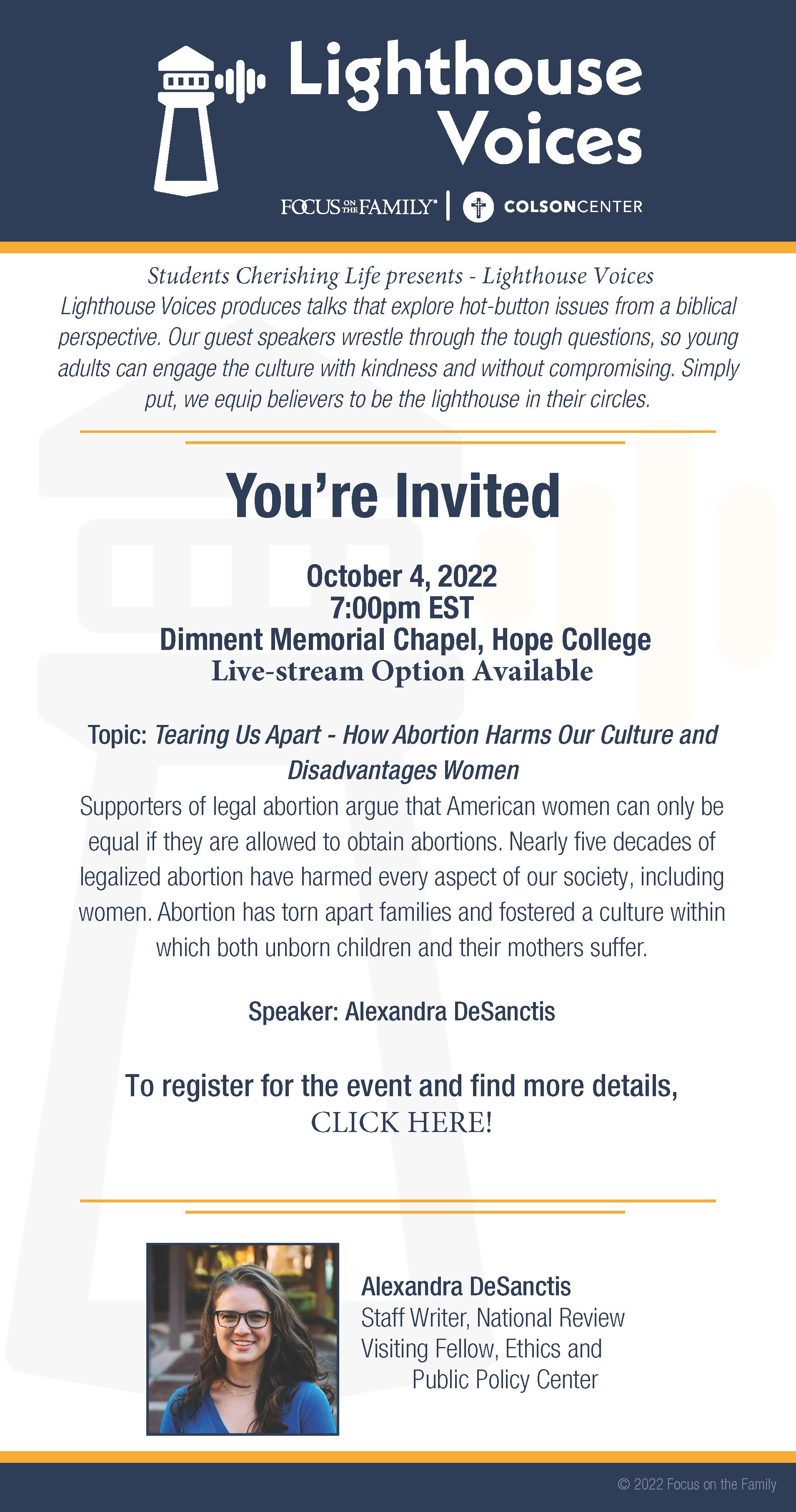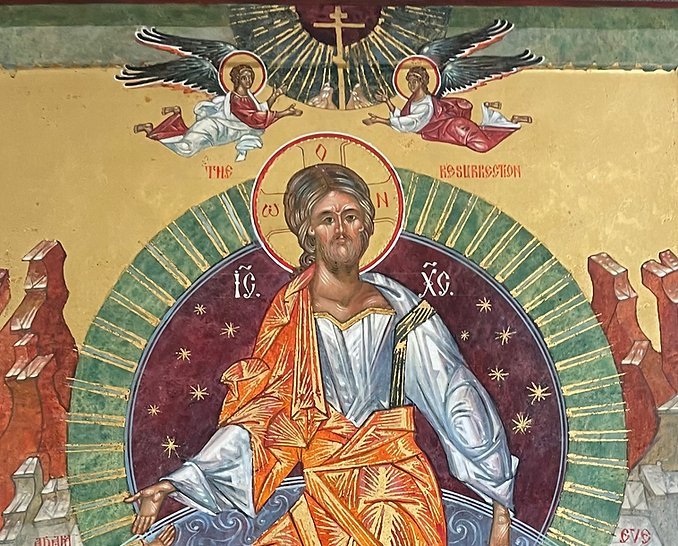Event Recap by Sarah Stevenson
“Every patient is a human being whose health and life are invaluable.” This was one of the many memorable quotes from Louis Brown Jr., J.D., during his lecture titled “Religious Freedom and Human Dignity: The Contemporary Crisis in Healthcare.” The lecture, which occurred on September 20, 2022, was hosted by the Saint Benedict Institute and cosponsored by the Hope College Departments of Nursing, Political Science, Religion, and Philosophy. Additional cosponsors included Markets & Morality, the Pre-Law Society, and Constitution Day.
Brown received a Juris Doctorate from Howard University School of Law. He previously worked as an attorney for a private practice, a state Catholic conference, and on Capitol Hill. Furthermore, he worked at the U.S. Department of Health and Human Services (HHS). He currently serves as the Executive Director of the Christ Medicus Foundation and as the Associate Director of the Center for Law and the Human Person at the Catholic University Columbus School of Law. Brown co-founded the Catholic Health Care Leadership Alliance (CURO) and he remains as a member on the board of directors for two Catholic healthcare entities.
According to Brown, there are three ways in which the Christ Medicus Foundation shares Christ’s love for healing: promoting the rights of medical conscience and religious freedom in healthcare, implementing strategic advisers to pro-life medical clinics, and offering a Catholic pro-life healthcare option for individuals and families. These mechanisms of action allow the foundation to promote the idea that every individual is created in the image and likeness of God.
Brown began the lecture with two anecdotes. First, he related the story of a pregnant African American woman who experienced improper care following the birth of her baby. This was due to the color of both her and her child’s skin and their health challenges. He also discussed the story of a patient who became incapable of making her own decisions, which left the patient’s sister as the guardian. Yet, the medical facility obtained legal guardianship over the patient, which ultimately left the patient’s sister without authority. The patient’s life was devastatingly ended by the medical facility. These accounts established Brown’s belief about the main issue in healthcare: the collapse of the dignity and sanctity of life.
The culprits of this collapse are secular medical ethics and public policy, according to Brown. These aspects of society seek to remove what becomes “inconvenient.” They seek to remove love. This can be termed “throw-away culture,” which is a culture that instills the belief that the unproductive are disposable. These features of society are the major sources of the erosion of civil rights in healthcare. This throw-away culture deems those that are not productive, or actively contributing to society, to be unneeded. The unborn, elderly, individuals with disabilities, those with chronic conditions, and other human beings are all lumped together into an “unproductive” category by this detrimental culture. All of these individuals are, in many instances, denied proper care due to their developmental state.
Yet, this throw-away culture is not necessarily a new idea. Brown provided numerous quotes from Dr. Leo Alexander, a key medical advisor during the Nuremberg Trials. One of the quotes read by Brown was written in 1949. Dr. Alexander noted, “Physicians have become dangerously close to being mere technicians of rehabilitation.” Brown identified the significance and disheartening nature of the quote: Dr. Alexander was explaining that the medical culture will become a throw-away culture. Both Dr. Alexander and Brown emphasized that it is dangerous to believe that rehabilitation and productivity determine dignity.
Brown then shifted to a recent issue: Michigan’s Proposal 3, the Right to Reproductive Freedom Initiative (2022). Brown highlighted the detrimental effects to the sanctity of life in healthcare as a result of such laws. There is no way that Catholic hospitals and medical entities could practice in an environment where such laws are instituted. Put simply, if religious freedom is removed from healthcare, then civil rights and human dignity in medicine will be degraded. The primary goal of healthcare will be profit rather than care.
How are Christians called to work towards reversing this urgent issue in medicine? Well, the Father is all-loving. Thus, as Brown explained, “God, who is Love, is empowering and moving the country towards pursing love and justice.” We are not called to be attached to a political party, which is a divisive facet in today’s society; we are called to just be Christians.
Brown concluded his lecture by highlighting organizations that strive to dissolve the throw-away culture and instead promote Christ’s love. Such organizations included the National Catholics Bioethics Center (NCBC), CURO, Christ Medicus, and Catholic Health Care Leadership Alliance (CHCLA).
With the current state of healthcare, Christians must work to establish greater protection over conscience rights for both patients and physicians. They must continue to take responsibility for rescuing their brothers and sisters in Christ. Finally, Christians must fight to re-focus medicine on the love that God gives to creation.
Sarah Stevenson is a senior and pre-medical student at Hope College.
















































